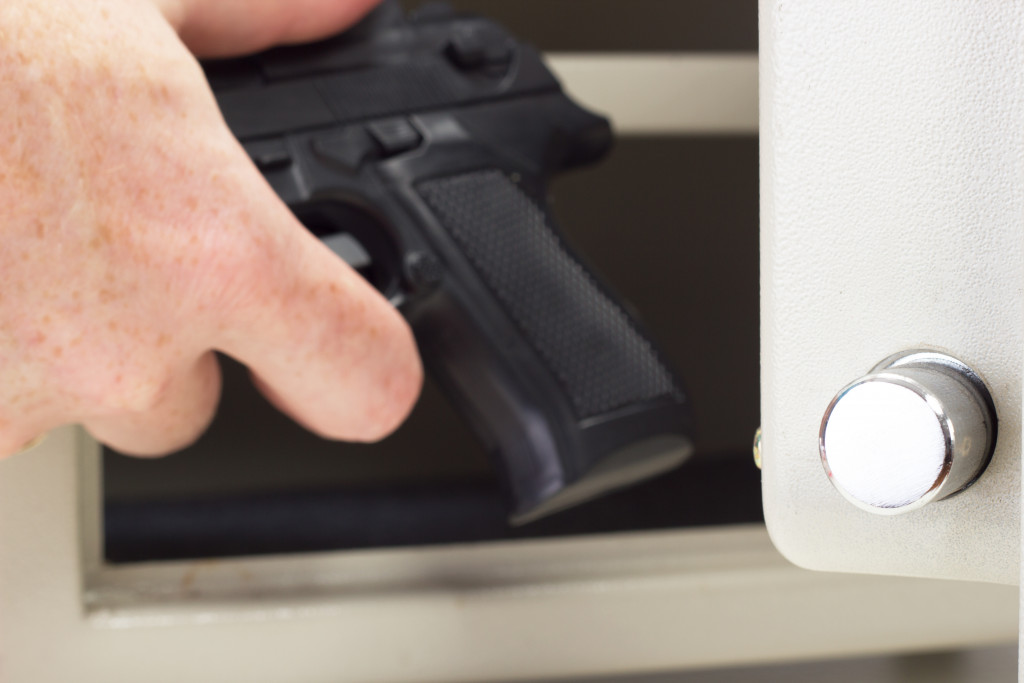“Gun violence is an epidemic and an international embarrassment.” This is what President Joe Biden said in April, as he announced executive actions targeted at reducing the growth of so-called ghost guns, or untraceable firearms that can be built from parts sold online. The President and other policymakers have proposed new restrictions on firearm access to address ghost guns and the rising incidents of gun violence in the country.
President Biden urged the Congress to pass two House bills to strengthen background checks for people buying firearms. He also called for the closure of the “Charleston loophole,” which allows a firearm transaction to proceed without a completed background check.
Therefore, if you’re in the firearm industry, the responsibility to reduce gun violence falls in your hands. To ensure that your customers deserve the right to own a gun, here are some background check tips:
1. Get Your Business Insured
A reputable firearms insurance firm should offer coverage for commercial liability, property protection, loss control, and background checks. The primary purpose of insurance is to minimize your losses when an injury occurs on your business premises. For example, if a customer gets hurt because of the firearms you sell, your insurance policy can cover the costs of addressing that incident. You won’t be personally liable, and your business won’t incur out-of-pocket costs.
As for background checks, your insurer can give you a private background check package. But generally speaking, anyone buying a gun is subject to the National Instant Criminal Background Check System (NICS) of the FBI. At the federal level, private sales aren’t subject to any background checks, hence the necessity of an insurance policy for private gun sellers.
2. Know the Red Flags
These factors that should trigger a background check, according to the FBI, are as follows:
- The buyer is convicted of a crime with a sentence of more than one year.
- The buyer is formally charged with a crime with a sentence of more than one year.
- The buyer is a fugitive.
- The buyer abuses controlled or illegal substances.
- The buyer is deemed by the court mentally incompetent (but getting mental health care doesn’t provoke rights to gun ownership).
- The buyer is in the U.S. illegally.
- The buyer holds a non-immigrant visa.
- The buyer has been dishonorably discharged from the Armed Forces.
- The buyer has renounced their U.S. citizenship.
- The buyer has a protective order against them due to domestic violence.
- The buyer has been convicted of domestic violence.
If a buyer raises one of these red flags, the FBI’s system will subject them to a three-day window, in which they will be investigated further. The final findings will determine whether they’re eligible to own a gun or not.
3. Know the Statistics, Facts, and News on Gun Violence

To know exactly the type of people you shouldn’t attract to your business, find out the statistics, facts, and news on gun violence. For example, according to Pew Research, 82% of Black adults see gun violence as a huge problem, while 58% of Hispanic adults and 39% of White adults think the same. All in all, 53% of Americans favor stricter gun laws. You must take all of these into account as you do background checks for your private gun sales. If you sell in a Black neighborhood, for example, you may need stringent background checks to ensure your community that they’re safe from gun violence.
Consider what senators and congress members propose as well. They’d like to hold gun manufacturers and sellers accountable for consumer negligence. That’s yet another reason you shouldn’t take background checks lightly. If a person who uses their gun illegally happens to be your customer, that’s a blow to your reputation.
Some Insight to Ponder
Venturing into the firearms industry is tricky. There’s no doubt that your business will draw mixed reactions, especially from people questioning the U.S. gun laws. That’s why it’s highly crucial to educate people on what a gun is for and how to own one responsibly.
A 2018 poll has found that 58% of Americans agree that their safety can increase by allowing law-abiding citizens to own guns. Moreover, 65% of men and 71% of women who own a gun say their primary reason for doing so is their protection. Carrying a gun and knowing how to use it correctly can induce a greater sense of safety, especially if you live alone. Such is a healthy mindset all gun owners must have. But you should see the weapon as a last resort for defending yourself in the face of danger.
If you sell firearms, that’s the kind of principle you should promote to your customers. Using guns for hunting (not poaching) or leisure (in shooting ranges) is also acceptable. Be meticulous in your background checks to ensure that your customers will only use their weapons for those purposes.




